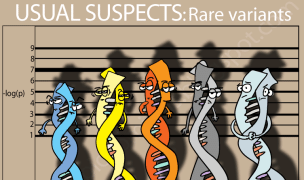 23 Terms
23 TermsHome > Industry/Domain > Biology; Medical > Human genome
Human genome
The human genome consists of 23 chromosome and the small mitochondrial DNA. 22 of the 23 chromosomes are autosomal chromosome pairs and the last one being a gender-determining pair. In total, the human genome contains the sequences of the 3 billion chemical base pairs that make up human DNA and approximately 20,000-25,000 genes. By understanding human genome, scientists are able to develop new medical applications that can significantly advance the state of health care.
Contributors in Human genome
Human genome
colon polyp
Medical; Human genome
An abnormal growth of tissue in the lining of the bowel. Polyps are a risk factor for colon cancer.
compound heterozygote
Medical; Human genome
An individual who has two different abnormal alleles at a particular locus, one on each chromosome of a pair; usually refers to individuals affected with an autosomal recessive disorder.
cerebrum
Medical; Human genome
1) The largest part of the brain. It is divided into two hemispheres, or halves, called the cerebral hemispheres. Areas within the cerebrum control muscle functions and also control speech, ...
chorionic villi sampling
Medical; Human genome
A method for diagnosis of fetal diseases by sampling the cells of the placental chorionic villi for DNA analysis, presence of bacteria, concentration of metabolites, etc. The advantage over ...
clinical trial
Medical; Human genome
A scientifically controlled study of the safety and effectiveness of a therapeutic agent (as a drug or vaccine) using consenting human subjects.
consultand
Medical; Human genome
The individual (not necessarily affected) who presents for genetic counseling and through whom a family with an inherited disorder comes to medical attention.
circadian rhythms
Medical; Human genome
1) The regular recurrence, in cycles of about 24 hours, of biological processes or activities, such as sensitivity to drugs and stimuli, hormone secretion, sleeping, feeding, etc. This rhythm seems ...

